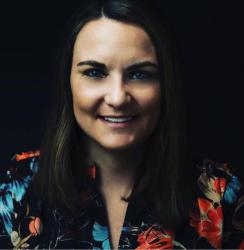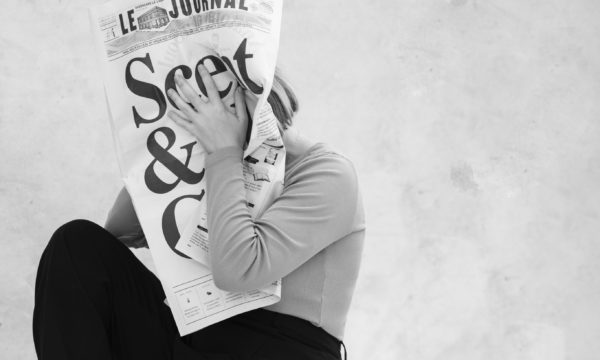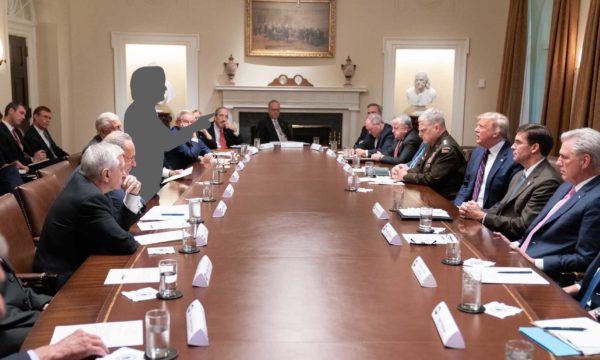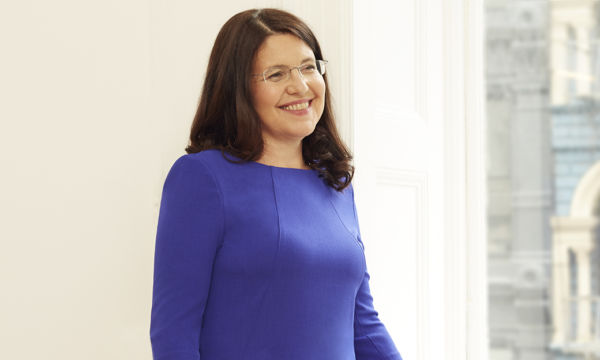
Shop This Look
Why Work Is So Much Better for Women in Iceland
Sitting in a trendy café in a neighborhood lined with homes in Iceland’s capital city of Reykjavik, Auður Albertsdóttir and Björgheiður Margrét Helgadóttir fit in seamlessly with the fellow customers writing in their notebooks, exchanging ideas over various coffee concoctions, and working on their laptops.
Albertsdóttir and Helgadóttir are board members of Ungar athafnakour, also known as the Young Professional Women of Iceland, a group that meets to build upon Iceland’s already progressive laws, regulations, and customs to create gender equality across work and home life.
The group has lectures and panels, company visits, courses on topics like salary negotiations, and meets on a regular basis. “We want to educate women,” said Albertsdóttir, who is in public relations and marketing.
Iceland, according to the World Economic Forum’s Global Gender Gap Index, is No. 1 in the world in terms of gender parity, a distinction it has held for many years (a fact even touted on its tourism website). The U.S., meanwhile, rates No. 53, according to the 2020 report.
“According to the World Economic Forum’s Global Gender Gap Index, Iceland is No. 1 in the world in terms of gender parity, a distinction it has held for many years.”
Albertsdóttir lived in Washington, D.C. in high school, which enables her to compare her experiences there with those in Iceland.
“I think the biggest thing that differs between them is the view on family—paternal leave, maternal leave,” said Albertsdóttir, 30. “I feel like in the States, it’s a bigger financial thing (for the families themselves.)”
In 2000, Iceland passed the Act on Maternity/Paternity Parental Leave, which provides parents with nine months of paid parental leave, split up between three months for the mother, three months for the father, and the remaining three months divided between the two.
In addition, at around age 2, a child can take part in subsidized daycare, a regulation that Hugrún R. Hjaltadóttir, special advisor for The Directorate of Equality within the Prime Minister’s Office, believes sets Iceland apart from the U.S. in terms of gender equality. Albertsdóttir has a 6-year-old and pays about $250 per month, while people in the U.S. can pay thousands per month for child care.

“We still have a lot of issues with it, because you lose a lot of money,” she said, adding that women tend to stay home because the men still earn more money. “Women are still getting less per job. It’s getting better, but it’s still there. And women aren’t controlling companies.”
However, the government of Iceland has sought to change the influence of women in top companies. An amendment to an existing law requires that companies with more than 50 employees have both women and men on their company boards, and if there are more than three board members, the percentage cannot be less than 40%. The law went into effect in 2013.
Meanwhile, Albertsdóttir believes that the United States’ culture of productivity harms equity in the workplace. Women, she believes, pick up the kids more because they tend to do all the “extra duties” in home life – both in Iceland and the United States. But, she adds, this makes women seem less productive as the men, which makes it more difficult to succeed,” she said.
“Albertsdóttir believes that the United States’ culture of productivity harms equity in the workplace.”
Making sure both women and men have the resources they need to succeed in the workplace is a major goal of Andri Kristinsson, CEO and co-founder of curated travel guides called Travelade, based in Iceland.
“I believe that an equal and diverse office culture is crucial, in relation not only to gender, but also to age, ethnicity, sexual orientation, language, education, and abilities,” he said. “A well-balanced workplace can have a positive effect on the entire organization. Beyond being fair, equality and diversity in the workplace also foster the sharing of different perspectives and opinions, which can help spark creativity and innovation and inevitably boost employee engagement.”
At Travelade, equality is tantamount to workplace culture. The company implements equal pay, equal parental leave, and strict policies against harassment and workplace offenses, he said. “In short, we believe that an engaging office environment is the main key to success, but without diversity and equality, there would be no passion or creativity, and, as a result, no Travelade,” he added.

Flexible working arrangements are a pillar of the company. For example, Kristinsson took parental leave and time off with his 1-year-old son. “If this had not been the case, I definitely would not have gotten to spend as much time caring for him and getting to know him, and as such, wouldn’t have gotten to contribute to his upbringing in equal amounts as my partner,” he said.
More widely, the company takes advantage of work-life balance initiatives such as doing activities outdoors and being active together. This past summer, the team went on an impromptu whale watching trip.
Like many people in Iceland, Kristinsson believes the United States could learn from the country’s maternal and paternal leave policies. “In Iceland, it’s not frowned upon if parents decide to take up to a year off work to take care of their newborn,” he said. “Iceland was one of the first countries to introduce such equal parental leave, even ahead of Sweden and Norway.”
For some in Iceland, moving away and returning reminded them about what the country offers in terms of gender parity. Linda Mjöll Stefánsdóttir traveled back and forth between Iceland and London for several years before deciding to settle back down in her native country. She opened up accommodations made from upcycled buses and materials so that visitors can connect to the land. She says visitors often include very strong-willed women who are independent.
For Stefánsdóttir, the arrangement allows her to be her own boss while also allowing visitors to connect to the land.
“I always missed Iceland,” she said. “It never stopped singing in my heart.”
This reporting trip was created with support by the Tulsa Artist Fellowship. Created by the George Kaiser Family Foundation, Tulsa Artist Fellowship supports both local and national artists while enriching the Tulsa community.








